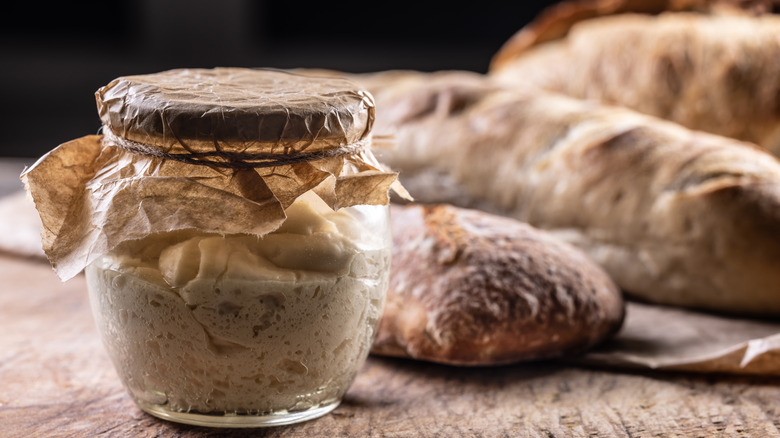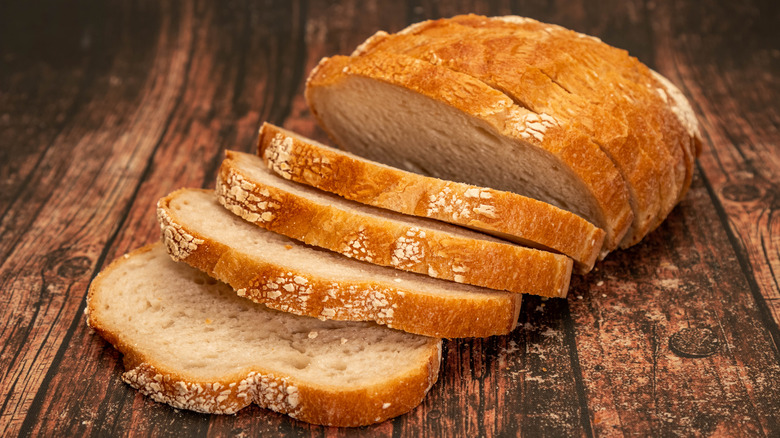This Is How Sourdough Got Its Name
In many cuisines, it's hard to imagine a day without bread; the foodstuff has been an indispensable part of our diet for centuries. There are so many types of bread to choose from, each with its own unique name and backstory. However, so often we craft or purchase a loaf without thinking twice about what its name really means.
Take sourdough, which keeps coming back in trend due to its unique fermentation and delicious taste. Its name seems like it would be obvious enough — simply a description of the bread's flavor. Except that sourdough doesn't have to be tart, and in fact, doesn't have a set flavor palate altogether, due to its spontaneous fermentation process.
Instead, the name first appears in print in 1868, and emerges as a form of slang referring to Gold Rush miners in California and Alaska. To sustain their rugged lifestyle, these frontiersmen would bring a sourdough starter, flour, and use water from nature to cook subsistence. This yeasty starter pack was a nutritional lifeline; men would sleep with it, and build special enclosures against cold protection. In an ode to their gritty perseverance, miners were called sourdoughs. The nickname ultimately became embedded in Alaska's culture, and is still used for the state's inhabitants today. And so, the name became intertwined with this bread type.
Sourdough's name hails from 19th century mining culture
In relation to sourdough's entire existence, this 19th century naming is a recent occurrence. The history of sourdough may have begun in Ancient Egypt, so prior, the bread had already been prepared in many regions, and known by various names. In fact, until commercial yeast was invented, most leavened breads were sourdough, reaching for a wild yeast starter base.
So as these baked breads spread across the globe, they adopted regional influences — as well as native yeasts — into the mix. As a result, the sourdough culture present in the West Coast of the U.S. today is also a relic of these 19th century introductions. Especially in Alaska, the age of the original sourdough starter is a source of pride, and often listed on menus. And the excellent bakery culture of San Francisco also took root from the Gold Rush era, hence the amount of spots for elegant toasts across San Francisco. So the name sourdough refers to more than just a style; but a self-grown bread culture that started in the U.S.

